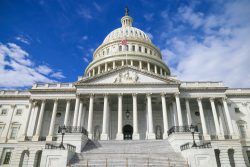
Congress is currently debating whether or not to raise the debt ceiling. Will policymakers protect the full faith and credit of the United States, or will they allow our nation to default for the first time in history, which would damage our economy while we are still digging ourselves out of a recession?
Federal grants to Arkansas totaled nearly $8 billion in 2019, around 30 percent of total state spending that year. If the debt ceiling isn’t raised, the federal government would need to impose a sharp reduction in spending that would threaten critical programs and services. That would leave many households, businesses, and state governments in a bad spot financially.
The debt limit is the maximum amount of money that the federal government may legally borrow. Raising the debt limit does not authorize new spending or tax cuts; it enables the government to fulfill its obligations to past budgetary decisions. Control of the White House and Congress has frequently been split for several decades, so the tax and budget decisions that have gotten us here have often been made on a bipartisan basis.
Successive administrations and Congresses have made these legally binding commitments directing the federal government to fund various things – including things like Medicaid and public health, schools and affordable housing, and transit infrastructure.
Even a lack of confidence in the federal government to fulfill its obligations can have negative consequences for the economy. If the federal government actually defaulted on its debt, its credit rating would be downgraded and the reductions in spending could push the economy back into a recession – even as we continue to struggle with the ongoing pandemic and its economic impact.
Arkansas Advocates for Children and Families urges both parties to come together to meet the government’s existing obligations and avert further economic hardship by raising or suspending the debt ceiling.
